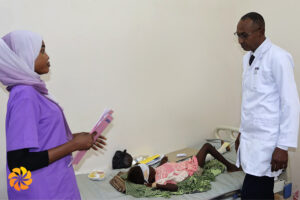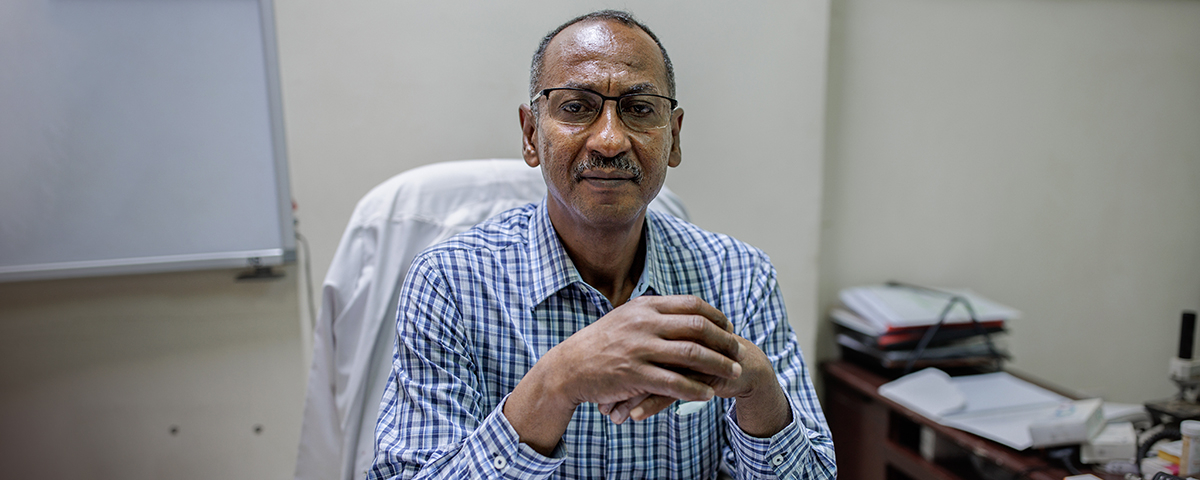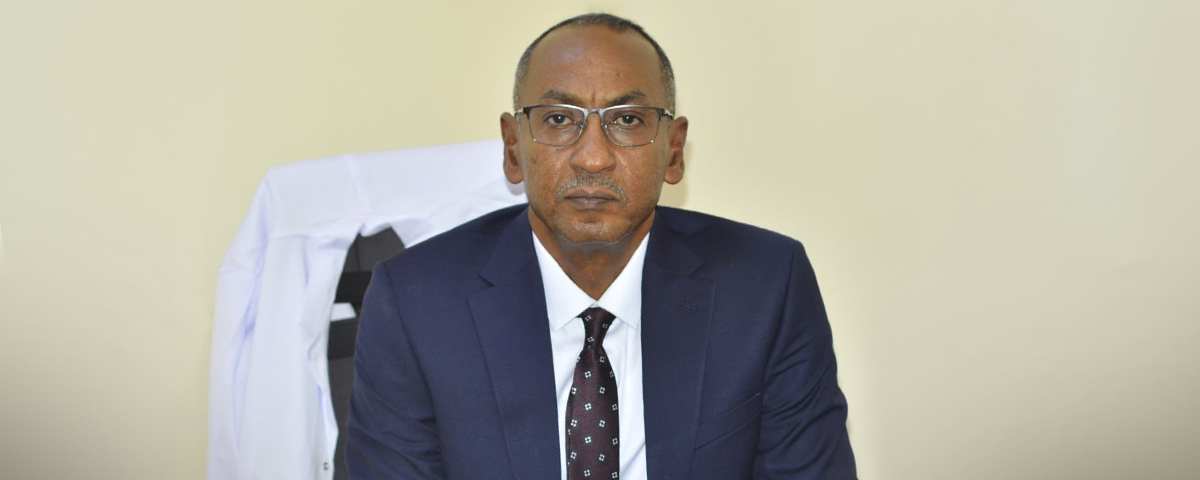Top photo: Dr. Jamal Eltaeb. Photo by Luke Dray
Jamal Eltaeb
Credentials
Humanitarian Cause
Healthcare and Food Security, Healthcare infrastructure improvement,
Impact Location
Sudan
Occupation
Medical professional / Head of Traumatology and General Director, Al Nao Hospital; 2025 Aurora Prize Laureate
Photo Gallery
About Jamal Eltaeb
In the chaos of Sudan’s civil war, Dr. Jamal Eltaeb, head of traumatology and general director at Al Nao Hospital in Omdurman, continues to keep its doors open. One of the last functioning referral hospitals in the greater Khartoum area, it serves the wounded and displaced seeking care amid bombardment and collapsing infrastructure. To date, Dr. Eltaeb’s commitment has saved hundreds of lives under difficult conditions: he works with no electricity, dwindling anesthesia, and a constant risk of attack.
Dr. Eltaeb was born in Kordofan, in central Sudan, to a police officer and a teacher. Because of his father’s work, the family often moved, and Jamal grew up in towns across the country. “It was a very interesting experience,” he recalls. “It allowed me to see Sudan’s diversity, its struggles and its resilience, all of which shaped me into who I am today.”
He completed his early education in Sudan before traveling to Belarus to study medicine. After six years abroad, he came home to work as a general practitioner, later continuing his specialization in orthopedic surgery and traumatology at Alexandria University in Egypt. “I wanted to be a doctor because I wanted to serve people in their most vulnerable moments,” he explains. “Growing up, I saw how fragile life can be and how much difference one person’s care and knowledge can make. Medicine gave me a way to turn compassion into action, to actually save lives, relieve suffering, and give hope where it is almost lost.” In 2012, Dr. Eltaeb returned to Sudan for good.
When conflict between two rival military fractions erupted in 2023, the situation in the country deteriorated rapidly. “War has destroyed communities, displaced millions of people, and left people without food, without safety or health care,” Dr. Jamal Eltaeb explains. Despite the chaos, he has witnessed remarkable courage and solidarity: “I have seen incredible resilience: ordinary people, local groups and communities stepping up to help each other when everything else collapses.”
Two years later, reality remains dire. “While the shooting has eased a bit in our area, people are still starving, and no basic life needs [are met],” says Dr. Eltaeb. Hospitals are overwhelmed or destroyed, with critical medical supplies dwindling. “Patients come in with injuries or illnesses, and we often don’t have enough resources to treat them. A few months ago, we had an outbreak of cholera. It was a nightmare for us and for the whole town. We are seeing rising malnutrition and preventable deaths. It feels like a race against time.”
Even as resources are running low, Dr. Eltaeb perseveres. “Every day here means moving from one emergency to another,” he says. “Operating on patients injured in shelling or gunfire, sometimes for hours without rest, managing logistics, checking on patients, supporting families and working with colleagues to save as many lives as we can. Here in the hospital, there is a rarely a real end to the day, but each life saved gives us the strength to keep going.”
Among the countless stories that have marked his years of service, one stays with him most vividly. “Two children, Tagwa and Faris, went to the market to get something for their mother when a missile struck nearby,” he recalls. “Neighbors brought them to the hospital. Both were critically injured. I had to amputate Tagwa’s leg and her brother’s leg and arm right there in the emergency room, and there was almost no anesthesia available. Their mother arrived three hours later, expecting to find them dead. When she saw them alive, her relief and gratitude were overwhelming.”
Even though the constant exposure to pain and loss could easily become unbearable, what sustains Dr. Eltaeb is a focus on life, not death. “I cope by focusing on the lives we save, rather than the losses,” he says. “I remind myself that my role is to bring hope in moments of despair. Staying strong for my patients is, in itself, an act of healing.” He also credits his family for helping him endure. “Talking to my wife and children helps ease the pain,” he says. “Hearing their voices gives me comfort and reminds me what I am fighting for, even in the hardest moments.”
For him, the spirit of ‘Gratitude in Action’ lives in the families thanking him for saving loved ones, in parents holding their children close, and in patients who almost believed their lives were over. “That gratitude carried me through sleepless night, through long surgeries and the fire, and through the moments when my own life was at risk.”
Over time, his understanding of humanity has deepened. “In my work, it means seeing every patient as more than a case, as a life with dignity, family, hope. At first, I thought it was only about saving lives,” he admits. “But I’ve learned it’s also about compassion. It’s about listening, comforting, and giving people strength when they feel they have none.” His patients, he says, have been his greatest teachers. “From them, I’ve learned to never take family for granted, and to keep going, no matter how difficult the circumstances. Humanity has become both my guide and my purpose.”
Being nominated for the Aurora Prize, he says, is both a personal honor and a collective recognition of all those who keep serving despite danger. “It is a symbol of hope,” Dr. Eltaeb explains. “It honors those who put compassion above their own safety and reminds the world that courage and kindness still exist.”
In a distant city in war-torn Sudan, Dr. Jamal Eltaeb and his team continue their life-saving mission with quiet endurance and unwavering empathy. “Humanitarian work is not about being a hero,” he says. “It’s about standing with people in their hardest moments, listening to them, and showing that their lives and dignity matter. Even the smallest act of kindness can bring hope. It’s fragile, but it is the force that keeps us moving forward.”
The information on this page was last updated on 10/29/2025 and was provided by the Luminary.





